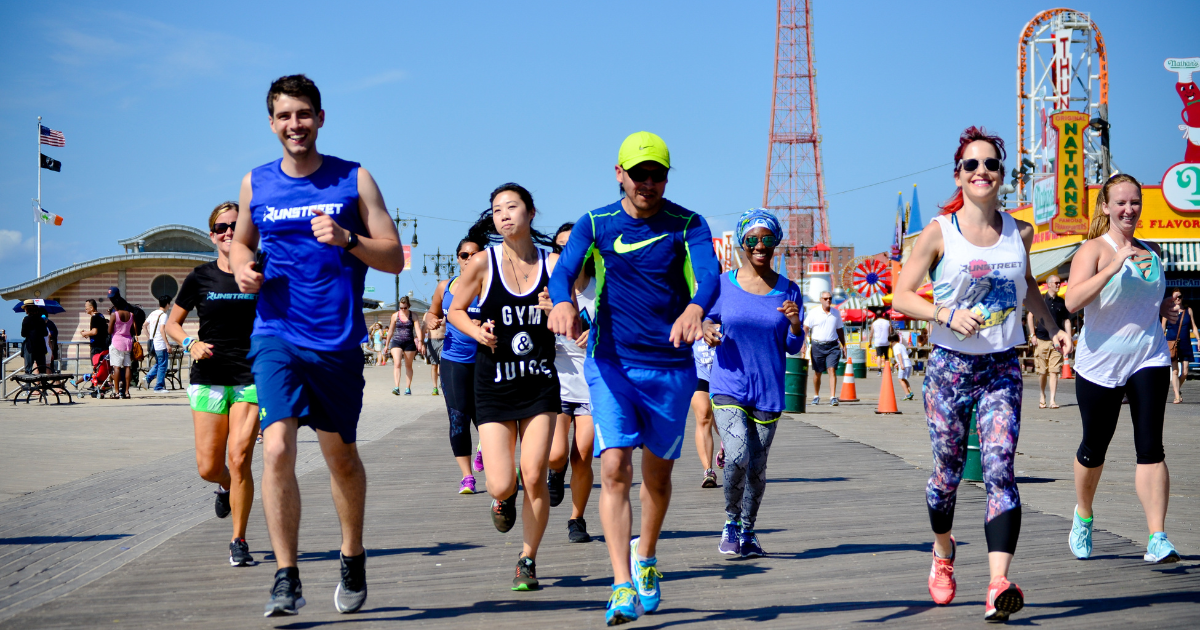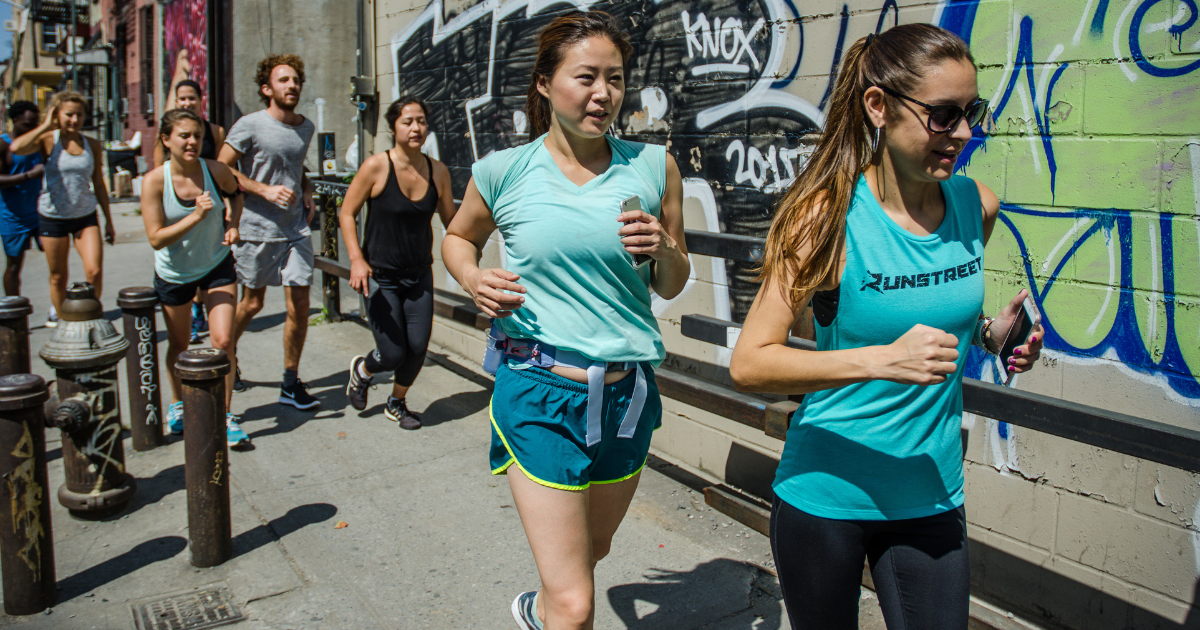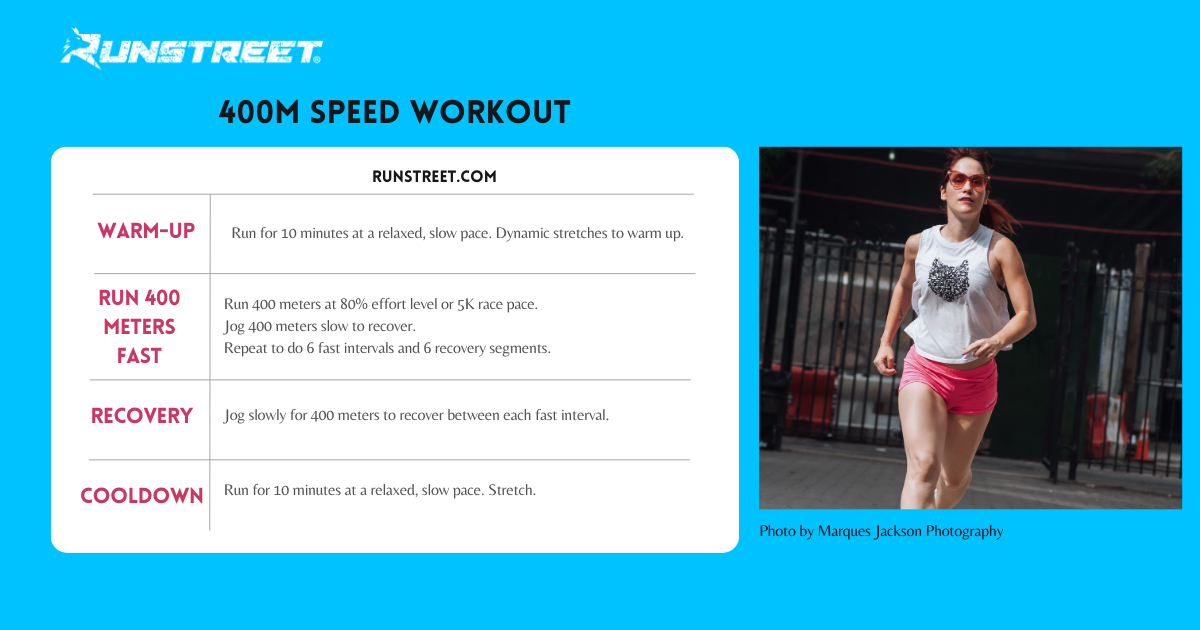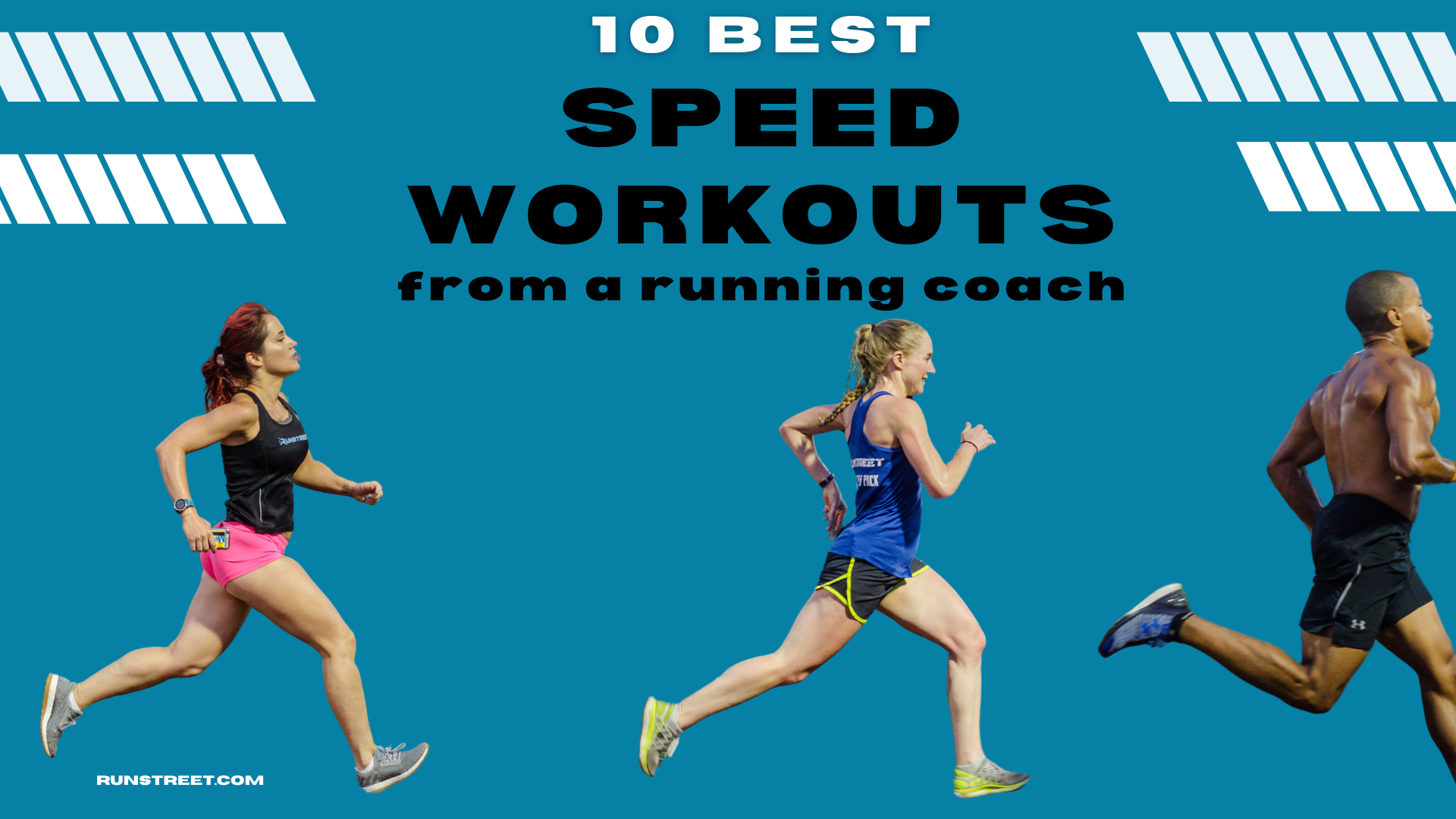How to Run a 5K Faster
Photos by Marques Jackson Photography.
By Marnie Kunz, NASM-certified trainer, USATF- RRCA-certified run coach
Learn how to run a 5K faster and achieve your best race time. As a running coach and lifelong runner, I enjoy helping people crush their 5K goals. The 5K is one of my favorite distances and is the most common race distance. To train for the 5K, you'll need to work on your endurance, speed, and mental toughness. These are my top tips to help you shave your 5K time and have an incredible race:
Related Post: Couch to 5K Free Training Program
Build Your Fitness Base
An essential foundation for learning how to run a 5K faster is your fitness base. You'll need to run regularly - at least three times a week - for several weeks to prepare for your 5K. If you're a new runner, give yourself at least 10 weeks to train for a 5K. On the other hand, you may need only 6 to 8 weeks if you're an advanced runner to train for a faster 5K.
A fitness base is vital to have before you begin speed training. I recommend doing relaxed-pace base runs for 6 weeks for new runners before adding speed to your program. Easy runs will build your fitness level and endurance.
If you're an experienced runner, you can begin speed workouts immediately. Interval training is one of the best ways to get faster for 5K races.
All runners need a solid aerobic fitness program to strengthen your heart and improve your running efficiency. Base runs will be the backbone of your training program. These are relaxed-base runs at about 40 to 50 percent of your maximum effort level. If you use heart rate training, this will be 40 to 50 percent of your max heart rate.
For your base runs, aim for an easy jog at a pace that you can comfortably maintain and keep up a conversation while running. Base runs - or Zone 2 training - will improve your aerobic capacity and allow you to run for longer without fatigue.
Boost Your Endurance
The next element you'll need to run a faster 5K is endurance. The 5K is a distance race that requires stamina, and you can improve yours by adding more mileage to your training program. If you're a beginner following a run-walk program, you'll gradually build up to more running and less easy walking as you progress in training.
Follow the principle of progression and add no more than 10 percent more miles to your program from week to week. For example, if you run 10 miles in one week, you can add up to 10 percent - or 1 mile - to run 11 miles the following week. Building your endurance gradually helps reduce your risk of running injuries and overtraining.
As you add miles to your program, you can run as far as 4 miles for beginning runners. You may do longer runs - up to 5 or 6 miles - for more advanced runners as you build your endurance. Remember, your goal is to learn how to run a 5K faster, so you won't need to do runs that are much longer than 5 km.
Usually, doing one long run a week is the best way to build endurance. You can follow a custom running plan if you need more guidance for your specific goals and fitness level.
Do Speed Workouts
The next key ingredient for running your fastest 5K is to do speed workouts. Speed workouts add intensity to your training and offer many benefits, with the main one being they make you faster. I recommend doing at least one speed workout a week for beginners, and advanced runners can do two speed workouts per week.
Different forms of speed workouts can help you train your body on how to run 5K faster. Here are the top speed workouts to improve your 5K time:
Intervals are speed workouts that include intense bursts of running with periods of recovery. A sample 5K interval workout is: 6 x 400-meter intervals of fast running (at 80-90 percent effort level) with a slow recovery 400 after each speed burst. Be sure to warm up and cool down with 10 minutes of jogging.
Tempo runs are sustained effort speed workouts that are faster than your regular base runs. You can start with a 20-minute tempo run with 5 minutes of slow running to warm up and cool down. Aim for 30 seconds faster than your 10K race pace for your tempo run speed.
Strides are short bursts of speed - usually involving running for about 100 meters. Strides can improve your speed and also help you warm up before a race or speed workout.
Check out our speed workouts section for more details on the different types of speed workouts as well as sample workouts.
When you do a speed workout, follow it with a base run or recovery day so your body has time to recover. Never do speed workouts two days in a row as you increase your chances of getting injured and also will not gain the full fitness benefits.
Strength Train
Strength training is often overlooked, but it can have a big impact on helping you run faster. Strengthening your legs, core, and upper body will help you run more efficiently, reduce your risk of injuries, and improve your leg turnover speed.
For your strength training, you can do bodyweight workouts or weightlifting. Some excellent compound exercises you can do to get started include squats, push-ups, lunges, and planks. The key is to be consistent and do strength training at least twice per week.
Related Post: 10 Best Compound Exercises with Dumbbells
Rest and Recover
Your 5K training will fall apart if you don't take time for rest and recovery. Take at least one rest day per week from running and hard workouts. You can take active recovery with activities such as some light walking or yoga, but give your body a rest from hard workouts.
During these downtimes, your body can rebuild and repair from intense training days. Recovery days are vital to prevent injuries and mental burnout.
Prepare Your Mind
Running is a mental sport, so practice training your mind if you want to learn how to run a 5K faster. Just as with physical training, we all have areas of our mental training that could use improvement. Do you talk negatively to yourself when you run or struggle with a lack of consistency? Focus on the mental aspects of running that you can improve the most and find ways to strengthen your mind.
If you find yourself in a negative thought cycle, try using mantras - short, positive phrases to repeat during tough workouts. They may feel awkward at first, but the more you use mantras and learn to replace negative thoughts with empowering ones, the stronger your mental game will be.
Another common area that runners have issues with is nervousness before or during races. This used to be a big issue for me as an anxious kid growing up running cross country and track. However, practicing meditation and visualization helped me learn to relax my mind and allowed my body to perform better in races. Check out 6 Tips to Visualize Running Success for a step-by-step guide on how to visualize your ideal race and use the power of your mind to perform better.
Taper
Tapering means reducing your training as you prepare for your 5K race. This will give your body and mind the best chance at peaking on race day and ensure you don't arrive at the starting line depleted. Do your last hard workout at least a week before race day, and reduce your miles in the week leading up to your 5K. You can do some strides during that week but no other speed workouts.
Ready, Set, Race!
Have a great race! Believe in yourself and your training, and have fun! These tips for how to run a 5K faster should help you crush your race.
Need a 5K training plan to help you PR in your big race? Visit the Runstreet Training Center for a professional coaching plan.
What helps you run faster in races? Follow and tag @Runstreet on Instagram to share your training and get cheered on. Happy running to you, and have an incredible race!
Related Posts: 5 Speed Workouts for 5K Success, How to Taper for a Better Race Day
Marnie Kunz is a NASM-certified personal trainer and USATF- and RRCA-certified running coach based in Brooklyn, NY. Marnie likes helping people get and stay active to enjoy a better quality of life. When she’s not doing fitness things, Marnie enjoys exploring with her dog, a mischievous rescue Akita.





